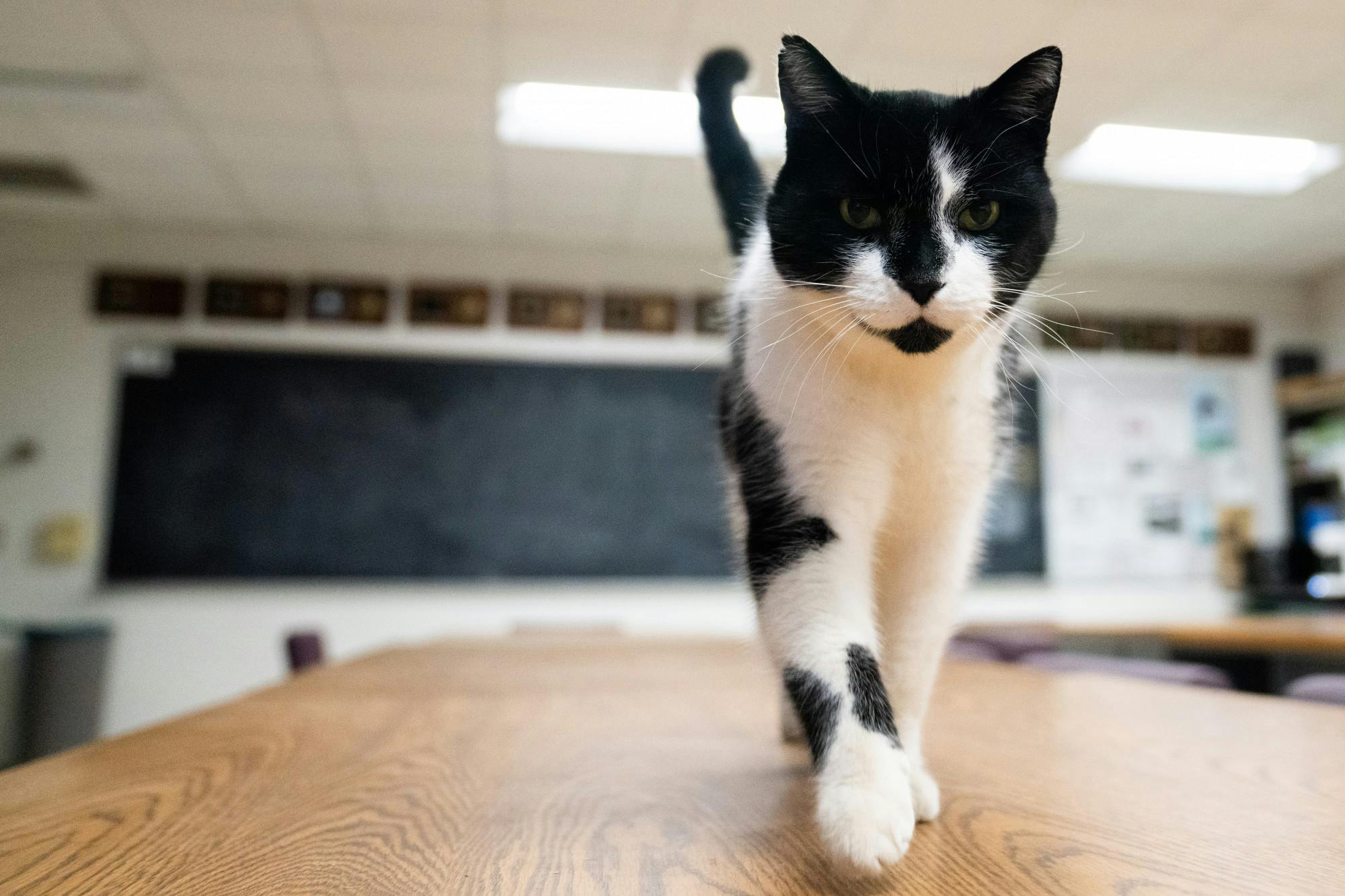Adopting a pet in college helps to relieve stress and have a companion through the ups and downs of a semester. It also poses a set of responsibilities that otherwise force the pet’s caretaker to consider the needs of a being outside themselves.
These new responsibilities can be pronounced when a student decides to bring a pet into their college home, the pet’s health is a new responsibility for the student to navigate.
Psychology and criminal justice senior Aya Altantawi said that looking back on her experience, she wishes she had paid closer attention to the online reviews of the veterinary office she took her cats to. Despite her hometown’s location having good reviews, the location in Lansing sent her on the hunt for a new veterinarian.
“(The Lansing location) didn’t have as good of reviews which should have been my first red flag,” Altantawi said.
Altantawi said with veterinarians, students will “get what you pay for,” and more research would have landed her cats in better care sooner. At her current veterinarian's office, the technicians reach out via text to check up her cats after an appointment or vaccination, compared to the last veterinarian where she felt that it was difficult to get ahold of anyone.
“It’s definitely a trial-and-error type thing … definitely do research, read the reviews,” Altantawi said.
For public relations junior Evelyn Sowerby, she was incentivized to bring her cats to a clinic soon after they were adopted from Capital Area Humane Society. She said she took advantage of an offer to have the cost of her cats’ first checkup appointment waived at certain clinics in the area since she adopted from CAHS.
“I looked at the list and did a little research, looked at the reviews and stuff online," Sowerby said. "It was easy."
Having grown up with cats her whole life, Sowerby said she paid attention to making sure they had food and water, but being a pet owner in college presents a new set of challenges.
“I think probably the biggest challenge is not knowing what your future holds,” Sowerby said. “A lot of college kids are unsure if they’re going to find a job right out of college or move states.”
The financial strain can add an extra source of stress, and an emergency pet fund may be necessary.
“I keep my savings account up … I know some (veterinarians) offer payment plans to spread (the payment) out,” Sowerby said.
Human biology junior Sydney June said she had to find an in-case-of-emergency plan for her cat's care because she is an out-of-state student. Before moving to her college town, she found the nearest 24-hour emergency vet clinic that she could rely on.
“It’s a really big responsibility. I think the idea of adopting an animal is really glamorized, especially for college students … I think it’s great when people want to adopt animals, … (but) people should make a pros and cons list of owning a pet (before adopting),” June said.
Besides the general upkeep of a pet’s health, June said she suggests simplifying care for a pet when possible. For example, she has a service which ships her cat’s food to her apartment.
“It just comes as a package once a month, which makes it easier,” June said.
Pet insurance can help alleviate the stress of financing pet health. For Altantawi, she said she’s still waiting to see it pay off in comparison to paying up front.
“I’m still trying to calculate if it’s worth it. They give you back some money, which is better than none. But I don’t know if it adds up all together,” Altantawi said.
Support student media!
Please consider donating to The State News and help fund the future of journalism.
Discussion
Share and discuss “Students navigate health care for pets in college” on social media.







